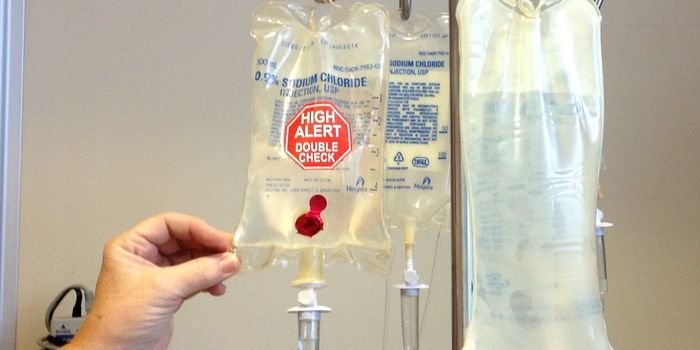Does Adjuvant Chemotherapy Really Help in a Rare Signet-ring Cell Carcinoma
For many rare diseases, there is a lack of a “standard” treatment options. This is more prevalent in diverse diseases like cancer, which has hundreds of types and subtypes. One rare type of colorectal cancer, signet-ring cell carcinoma, was the subject of a new study evaluating whether or not adjuvant therapy after surgery was effective.
A team from the First Hospital of Jilin University in China wanted to know if chemotherapy was necessary after tumor-removal surgery. The team notes some studies that there is conflicting evidence supporting adjuvant chemotherapy. Considering the high expense of chemotherapy, the team wanted to make sure patients were not spending even more on unnecessary treatment.
Their study revolved around analyzing signet-ring cell carcinoma patients from the SEER database to see how effective adjuvant chemotherapy was. This database covered a large percent of the North American population, and so should be a good representation of the population. In the end, they had a balanced dataset of patients who were treated with or without adjuvant chemotherapy (chemotherapy after surgery).
The data from the SEER database was pretty clear that those patients who were given the chemotherapy had a stronger overall survival rate than those who weren’t. The adjuvant chemotherapy nearly doubled the chances of survival compared to no adjuvant chemotherapy.
If you followed common sense, you might also conclude that chemotherapy should help get rid of cancer. However, chemotherapy has many detrimental aspects to it, from toxic side-effects to sheer cost. The conflicting evidence has prevented a “standard” treatment for signet-ring cell carcinoma. The team notes that another study, one who took data from a large patient group over 20 years, agrees with this study’s results. Considering the clear positive correlation between survival and chemotherapy in this work, I would say evidence continues to support the pro-chemotherapy side.
The study concludes, “In conclusion, our results have shown that stage II/III colorectal SRCC can gain survival benefit from postoperative adjuvant chemotherapy. This is a large population-based study to discuss adjuvant chemotherapy for patients with localized colorectal SRCC, and our present findings might be of significance for disease management and future prospective researches.”
Sources: Nature Scientific Reports, OncLiveTV









